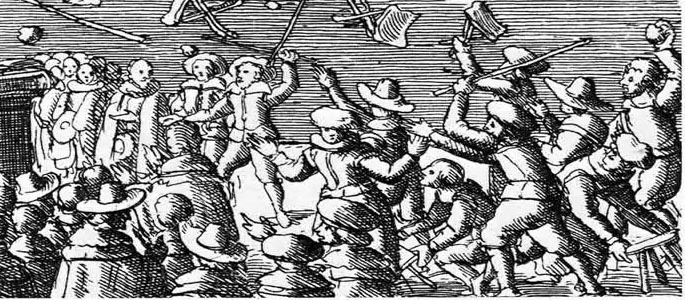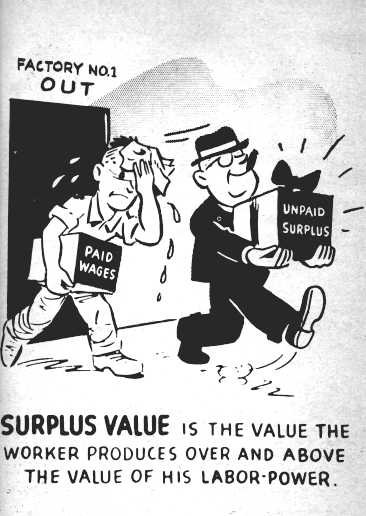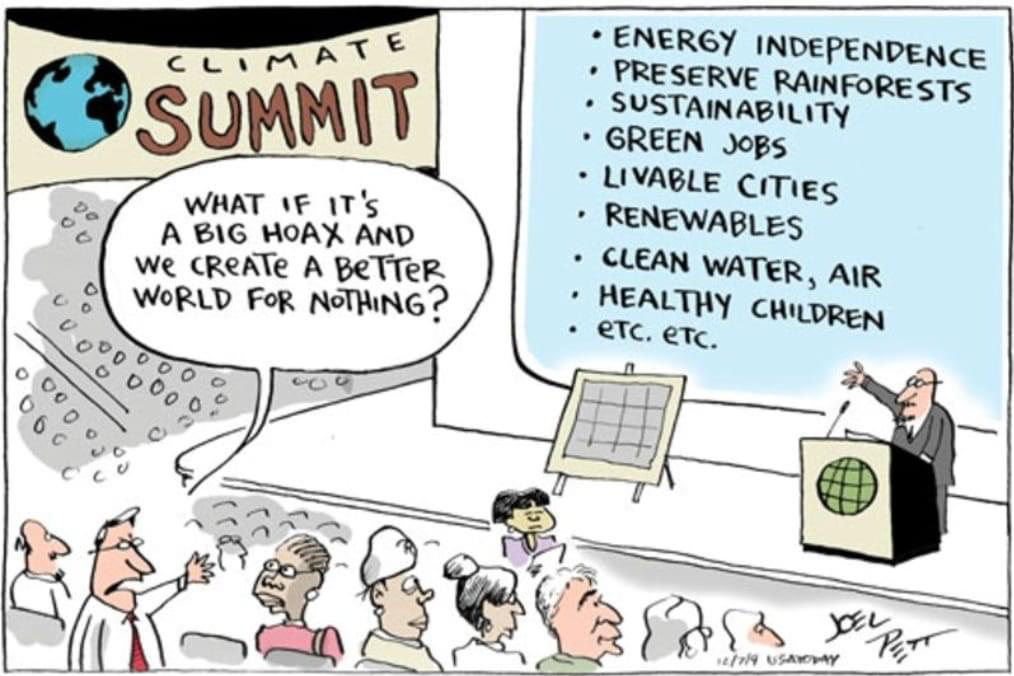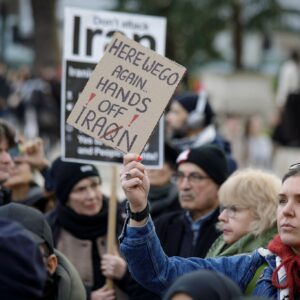Some people think that capitalism is money, trading and buying and selling things. But we have hda these things for thousands of years. We need to be clearer about what is specific about capitalism as the current society we live in.
Capitalism is a system where the mass of humans are waged workers, and a much smaller number of people own or control the businesses and organisations we work for. Billions of us are forced into work (or we starve!) and we make profits for the bosses who enrich themselves from our work.
For most of human civilisation, humanity has been divided between those with power and wealth and those without. Those controlling society’s resources called themselves Kings, Queens, Emperors, Lords or various other names. The rest of us often lived pitiful lives as peasants working the land or slaves owned by other humans. Some of our ancestors were craftsmen or artisans, making things for sale. Many of us worked on communal land, growing crops or farming a few animals.
In modern-day Britain, since the 17th century, the rich have stolen more of the land. Parliament and the King passed a series of acts called enclosures that forced people off the land. By the late 18th century, this was compelling more people into towns and cities, as they could no longer live off farming but had to sell their ability to work to someone in exchange for wages.

In exchange for wages, the newly emerging capitalist class required work. They put us to work in factories, initially mainly producing textiles (often using cotton from slaves in the Americas), but as technology developed, we began to work in more complex industries, moving from steam power to coal power, producing machinery and consumer goods.

This is the modern system of wage labour. It allowed the capitalist class to make huge profits. They make profits because we are paid the basic cost of what it takes for us to reproduce ourselves, pay our rent/mortgages, buy food, clothes and so on. They pay us the value of only a few hours of our work; the rest of our work produces surplus value, the extra money they take that makes up profits.

Some workers earn more because of the demand for certain skills and qualifications, but none of us is paid the real value of our labour to the employers. Our worth is also constantly judged according to our gender, ethnicity, and nationality. Capitalism plays us off against each other, creating a system of apparent scarcity and making us see each other as enemies to divide and rule.
Capitalism has evolved over time and created new jobs and work – lots of people in the UK are office workers or in retail, finance and so on. Some people don’t think they are working class because they don’t work in a factory, but if you have to rely on your wages to live and you have little power over your working day then it is worth thinking about where you fit into the economy and society in general.
Capitalism is a global system; the demand for more markets, workers, and commodities to sell is like a beast that stalks the planet, always hungry, consuming, and only getting hungrier. It is defended by armies and militarised police who serve governments that ultimately protect the elites. We live in a world where the interests of companies and capitalists is assumed to be what is right for all of us. Where the ‘national good’ is what is good for the corporations. Where politicians get elected using working-class votes but then pass laws that attack us before securing a lucrative job as a lobbyist or executive for a multinational company. We have seen how the interests of fossil fuel companies have led to environmental devastation and threatened life on this planet. Politicians issue statements saying how bad it is but do nothing about it.
Despite this reality, we can see that capitalism is a more economically efficient system than any that has come before in the history of human civilisation – its efficiency comes from its rapacious need for profit, and this has helped build modern cities, technologies and societies, which would have been impossible to conceive 200 years ago. But that does not mean it is the most efficient society we could live in.
Socialism
As capitalism emerged as an economic system in the early 1800s, many were already critical of it, concerned about how it created a super-wealthy elite and consigned many of us to a life of want and sacrifice. Some of these people developed socialist ideas and proposed that rather than there being a capitalist and a working class, with a parliament that ultimately serves the rich, why not have an economy built on genuine democracy where all our resources are held in common?

Some of these socialists developed elaborate plans for what a potential socialist society might look like, they were later called Utopian Socialists because their ideas were based on intellectual designs, not on the actual struggle of working-class people. Later on, other socialists emerged, most famously Karl Marx and Friedrich Engels, who suggested a different route based on the inevitable resistance of workers, the poor, and the socially oppressed.
The basic ideas of socialism are to transform our society root and branch and create a democratic world where we collectively decide on economic and social questions. No longer do the captains of industry or the shareholders get to hold a gun to our heads and dictate what happens. We become the ones in charge.
How? We need a mass movement of working people who can fight on all three fronts of the struggle, industrially (at work), politically (over power) and ideologically (with ideas). Socialism is about democratic control of our workplaces and production, distribution and exchange being decided according to an agreed social plan for what is needed for both people and the planet.
This will be far more efficient than capitalism, which wastes millions of tonnes of food yearly and mass produces cars and plastics it never uses. It occasionally goes into economic crisis and casts people out of work and into poverty. Because capitalism relies on profit, it can be incredibly dynamic, but when companies expand too much, their profits shrink, and they enter into crises.
We need a different way of living, one where mass assemblies and popular democracy replace the occasional national election and where we can transform our towns and cities so that they work for us and not for businesses. One where we can transform the urban and rural relationship to better protect nature.
Socialism is not a panacea where we just say ‘socialism will fix it’ – it is a political and economic system that allows humans to be in a better position to fix our social and environmental problems because we will no longer be under the tyranny of this thing called ‘the economy’ that dictates our lives, and which apparently is beyond anyone’s control.
Some might say this is utopian and impossible, but they would have said the same about overthrowing absolute monarchies. We just need enough people to fight for it. Others claim that human nature is inherently greedy and selfish, which makes any attempt to work collaboratively impossible. We disagree with that too. Humans collaborate all the time, we have built cities and planes and railways collaboratively, we have worked together to provide social and health care, organise sporting events and build extended families. Yes, humans can be selfish and individualistic, but humans can also be brave and generous. They can sacrifice their lives for things they believe in and love each other unconditionally.
Humanity is capable of incredibly beautiful and wonderous things. But we live in a world that forces us to war, fosters racism and hate, that creates cults of worship around men like Elon Musk and Andrew Tate. It has become a world where to live, we must destroy the planet. But we know we can do better and, in the face of the barbaric future the capitalist class is driving us towards, we must do better.
Art Book Review Books Capitalism China Climate Emergency Conservative Government Conservative Party COVID-19 Creeping Fascism Economics EcoSocialism Elections Europe Fascism Film Film Review France Gaza History Imperialism Israel Italy Keir Starmer Labour Party Long Read Marxism Marxist Theory Migrants Palestine pandemic Protest Review Russia Solidarity Statement Trade Unionism Ukraine United States of America War
Latest articles
- Solidarity with the Ukrainian peopleStatement approved by the International Committee (IC) of the Fourth International on 25 February 2026.
- US/Israel hands off Iran! No liberation through US bombs!
 Statement of the Executive Bureau of the Fourth International 28 February 2026
Statement of the Executive Bureau of the Fourth International 28 February 2026 - Your Party’s New Leadership – The CEC Election And The Likely Fallout
 What are the possible consequences of Your Party’s recent CEC elections, Joseph Healy looks at this in the current political context.
What are the possible consequences of Your Party’s recent CEC elections, Joseph Healy looks at this in the current political context. - Earthquake in Gorton, tremors in Downing st.
 Dave Kellaway makes an initial analysis of the Green victory in Gorton and Denton
Dave Kellaway makes an initial analysis of the Green victory in Gorton and Denton - Your Party and the return of strategy
 The CEC elections are over. Your Party needs a clear vision and action to coordinate the resistance to capitalism, climate collapse, and the far right, argues Simon Hannah.
The CEC elections are over. Your Party needs a clear vision and action to coordinate the resistance to capitalism, climate collapse, and the far right, argues Simon Hannah.

